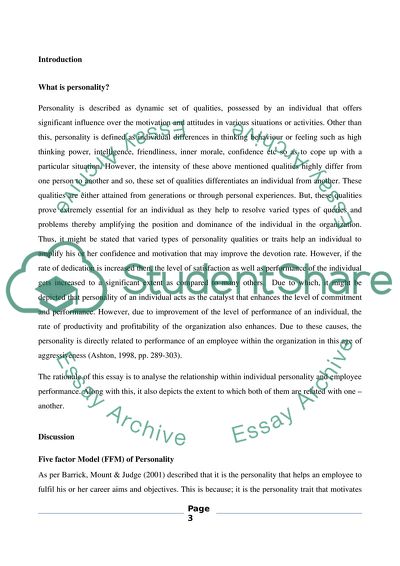Cite this document
(To what extent does personality predicts employee performance Essay - 2, n.d.)
To what extent does personality predicts employee performance Essay - 2. https://studentshare.org/human-resources/1829592-to-what-extent-does-personality-predicts-employee-performance
To what extent does personality predicts employee performance Essay - 2. https://studentshare.org/human-resources/1829592-to-what-extent-does-personality-predicts-employee-performance
(To What Extent Does Personality Predicts Employee Performance Essay - 2)
To What Extent Does Personality Predicts Employee Performance Essay - 2. https://studentshare.org/human-resources/1829592-to-what-extent-does-personality-predicts-employee-performance.
To What Extent Does Personality Predicts Employee Performance Essay - 2. https://studentshare.org/human-resources/1829592-to-what-extent-does-personality-predicts-employee-performance.
“To What Extent Does Personality Predicts Employee Performance Essay - 2”. https://studentshare.org/human-resources/1829592-to-what-extent-does-personality-predicts-employee-performance.


